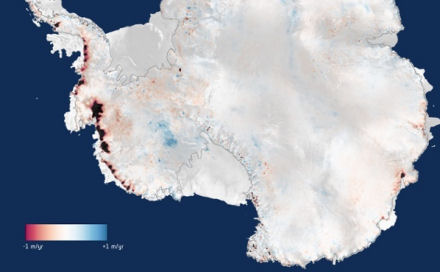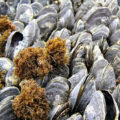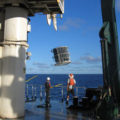
The Royal Society in the U.K. has issued a worrying report about rising acidity in the world’s oceans. “If CO2 [carbon dioxide] from human activities continues to rise, the oceans will become so acidic by 2100 it could threaten marine life in ways we can’t anticipate,” said report author Ken Caldeira, of the Carnegie Institution.
The world’s oceans are regarded as an important sink for capturing the CO2 created by human activity. Scientists say that more than a third of human-originated CO2 is absorbed by the oceans. Marine plants soak up the gas and convert it to food during photosynthesis. Marine organisms also use it to make their skeletons and shells, which eventually form sediments. But while marine organisms need CO2 to survive, work by Caldeira and his colleagues shows that too much CO2 in the ocean could lead to ecological disruption and mass extinctions.
Scientists believe the acidic water could interrupt the process of shell and coral formation and adversely affect other organisms dependent upon corals and shellfish. The acidity could also negatively impact other calcifying organisms, such as phytoplankton and zooplankton, some of the most important components of the planet’s food chain.
Carnegie director Chris Field said the report should “sound alarm bells around the world,” while it “strengthens the case for rapid progress on reducing CO2 emissions.”
Read the report at the Royal Society website


















Comments are closed.